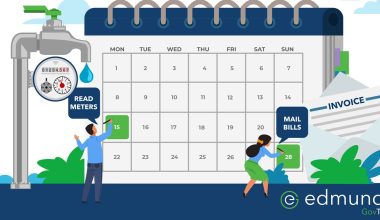Does your utility bill itself for usage in buildings you own? At first, this may sound like an odd question, but let’s look a little closer.
Three possible scenarios
When it comes to your own usage, there are three possible billing scenarios:
- Don’t meter or bill yourself
- Meter the usage but calculate bills using a no charge rate
- Bill yourself at your normal rate for commercial customers
Clearly, the first option is not a good one. If you’re not metering your own usage, you have no way to look for usage trends or, for water utilities, check for leaks.
In my experience, the second choice is far and away the most common. Metering and tracking usage with a no charge rate provides a way to compare usage trends for your own accounts, just as you would with any other customer. Additionally, if you are a water utility and monitor your water loss, your own usage represents non-revenue water that should be tracked.
Why would you bill yourself?
The third option makes the most sense for local governments, especially those that operate their utilities as enterprise funds. Good accounting practice (and the law in some states) frowns on inter-fund transfers, such as the General Fund supporting the Water or Electric Fund.
Since many government buildings (think City Hall, Police Department, Fire Department, Parks and Recreation facilities) are part of the General Fund, “paying” yourself in the form of a utility bill is a perfectly legitimate way to transfer funds from the General Fund to a utility fund.


